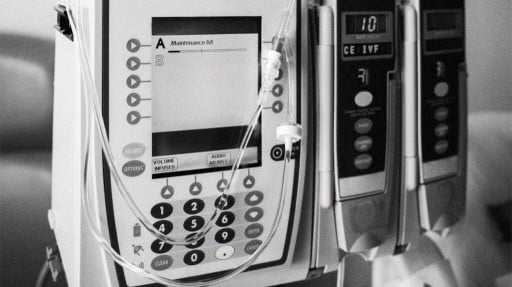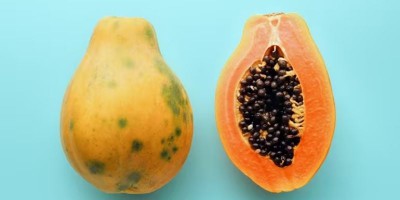- A new observational study found that people who ate tomatoes daily had a reduced risk of hypertension due to tomatoes’ potassium and lycopene content.
- Participants with higher tomato consumption had a 36% decreased risk of hypertension.
- Tomatoes can be incorporated as part of a heart-healthy, antihypertensive diet that includes whole grains, fruits, and vegetables.
Forget apples—eating a tomato a day might be beneficial for heart health.
The news comes from a study published last month in the European Journal of Preventive Cardiology, which found that tomatoes and tomato-based products could play a role in helping to prevent and manage high blood pressure.
Tomatoes—popular nightshade vegetables—are rich in potassium, a nutrient known to help lower blood pressure by lessening the effects of sodium in the body. They also play a key role in many heart-healthy diets.
“Tomatoes are one of the most consumed, widely available, and affordable vegetables worldwide,” study co-author Rosa Maria Lamuela-Raventos, PharmD, director of the Institute for Research on Nutrition and Food Safety at the University of Barcelona, told Health. “They are an important part of some of the best diets, including the Mediterranean diet.”
Here’s what to know about the role tomatoes might play in managing high blood pressure and how to best reap the nightshade vegetable’s benefits.

Boris Jovanovic/Stocksy
Eating More Tomatoes Linked to Reduced Hypertension Risk
For the new study, more than 7,000 Spanish adults at high risk of cardiovascular disease completed questionnaires about their lifestyles and health status, as well as dietary habits, which included tomato consumption.
Daily tomato consumption included eating raw tomatoes or tomato products, like tomato sauce and gazpacho (a cold Spanish tomato soup). Participants’ tomato consumption was categorized into four groups, based on serving size:
- Lowest (<44 grams)
- Intermediate (44–82 grams)
- Upper-intermediate (82–110 grams)
- Highest (>110 grams)
The study showed an inverse relationship between tomato consumption and hypertension risk in the lowest and intermediate groups, and a significant association was seen in the highest group. Higher tomato consumption decreases hypertension risk by 36%, and even moderate consumption has a blood pressure-lowering effect, according to the research.
There were less significant changes in blood pressure seen in those participants with higher blood pressures. The authors suggest this could be due to the fact that these people were older and had longer-standing high blood pressure and other risk factors, making significant change more difficult.
Health Benefits of Tomatoes
Why Eat Tomatoes for Heart Health?
Tomatoes were the target of this research because they are easy to find and relatively inexpensive, making them common in a number of diets all over the world.
Tomatoes are also a recommended food by the American Heart Association (AHA) for reducing hypertension mainly because they are high in potassium.
“There’s a huge amount of data that suggests higher potassium intake leads to lower blood pressure,” said Gregory Katz, MD, a cardiologist at NYU Langone Health. “It’s not clear whether that’s because potassium intake is a proxy for a general healthful diet or because potassium intake is a good proxy for a reduced sodium diet or whether potassium by itself is all that matters.”
The recommendation to reduce sodium and increase potassium is a well-established lifestyle modification for reducing the risk of hypertension. Increasing consumption of potassium-rich tomatoes is one effective way to increase dietary potassium.
In addition to potassium, tomatoes are also a good source of lycopene. Lycopene is a carotenoid that has a number of benefits for the cardiovascular system, including antioxidant, anti-inflammatory, anti-atherogenic, and antiplatelet effects. Research shows that these features also give lycopene significant antihypertensive properties.
Eating More Fruits and Vegetables Could Help Lower Your Risk of Alzheimer’s, Study Finds
Tomatoes as Part of a Heart Healthy Diet
While there are not many randomized clinical trials that look specifically at tomatoes for reducing hypertension risk, it is likely that they do play a role due to their potassium and lycopene content.
The current study is limited because it was observational in nature and “the study design means it’s not possible to draw conclusions about causation,” said Katz. However, there are no known downsides or negative effects to eating tomatoes daily.
There is a large body of clinical trials on diets known to reduce blood pressure, including the Mediterranean diet and Dietary Approaches to Stop Hypertension (DASH). These data support an eating pattern high in fruits, vegetables, and whole grains to help reduce blood pressure.
Of course, just including a tomato a day in your diet won’t reduce blood pressure alone. It is important to incorporate them as part of a well-balanced, heart-healthy diet with whole grains, legumes, and healthy fats.
Eating a variety of high-potassium foods can also help ensure you meet your potassium needs while loading up on vitamins, minerals, and antioxidants.
“The best diet for lowering blood pressure is one that someone can adhere to over the long term. Exercise is also really important, perhaps even more than diet,” said Katz.
Other potassium-rich foods that are part of a heart-healthy, antihypertensive diet include:
- Avocados
- Yogurt
- Bananas
- Oranges and orange juice
- Spinach
- Raisins
- Tuna
- Beets
Too much potassium can be harmful for individuals with kidney disorders, which are frequently co-occurring in individuals with high blood pressure. The kidneys are responsible for removing potassium from the blood, and if the kidneys aren’t able to perform this job efficiently, it could lead to hyperkalemia, a severe condition related to potassium buildup in the body.
Before significantly increasing the amount of potassium you eat or taking an over-the-counter potassium supplement, be sure to speak with your healthcare provider or a registered dietitian.








